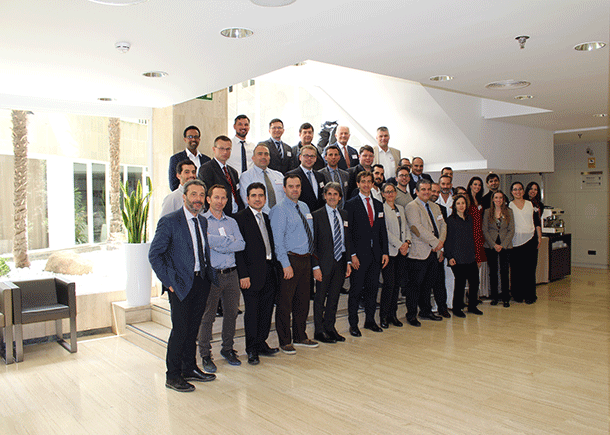Europe’s top maritime-safety representatives meet up in the 2nd MARISA Workshop

On 21 May, under the umbrella MARISA project (Maritime Integrated Surveillance Awareness), GMV put on the 2nd MARISA Workshop in Madrid.
The main aim of this project, which kicked off in May 2017, is the integration of Big Data with multi-sensor data-fusion; this groundbreaking technique involves the mining of data from different sources to glean useful, top-quality information, applied in this case with maritime security in mind. This will be possible thanks to the development of a set of interoperable tools for easy access of the data generated by the various technological resources now up and running.
The Horizon-2020 MARISA project involves a consortium in which the Italian multinational Leonardo is leading another 21 companies from 9 EU member states. GMV is one of these partner companies, playing a standout role in the project. It is responsible for system design, the development of anomaly-detecting and level-1 data-fusion algorithms, as well as carrying out the integration and operational trials.
The workshop explained the system’s various services and weighed up the results of the first operational trials held during 2018 in the project’s five scenarios: North Sea, Iberian Peninsula, Aegean Sea, Ionic Sea and the Strait of Bonifacio, with standout roles being played by the Portuguese Navy, the Spanish Guardia Civil, the Greek MoD, the Italian Navy and French Navy, all of whom swapped notes and took stock of MARISA as it stands.
The workshop, attracting a turnout of over 40, completely fulfilled its aim of setting up a stakeholder debating forum about the potential use of MARISA’s tools and functions as well as its interoperability with the other solutions currently available throughout Europe.
The guests included representatives of the Spanish and French navies, the Romanian coastguard, the European Organisation for Security (EOS), the Swedish Defence Research Agency (Totalförsvarets forskningsinstitu: FOI), the public finances service of Belgium, the European Joint Research Centre (JRC) and coordinators of the European SAURON and RANGER projects.
This year MARISA will be tackling the second phase of the project, bringing in new capabilities and improving existing ones in light of the lessons learned during the first phase. The system will then once more be trialed in the five chosen scenarios, stressing the use of real sensor data and participation of final users’ vessels to orchestrate the threats to be detected by the system.